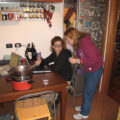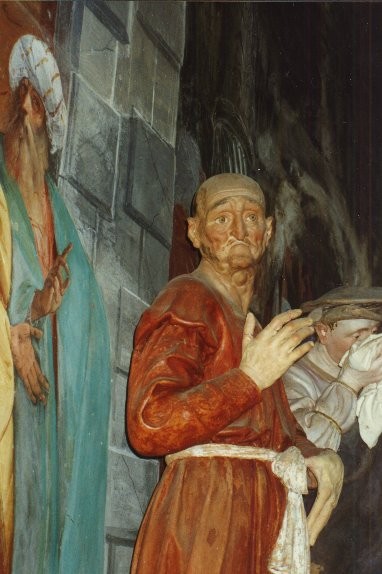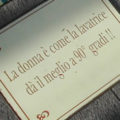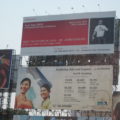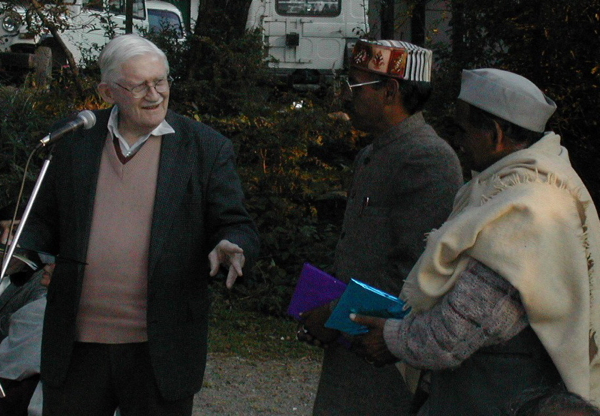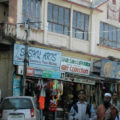I rarely watch television as such. At home in Milan, our TV is used mostly to display videotapes, DVDs, Video CDs, and Super Video CDs. Italian television (almost completely in the hands of Prime Minister Berlusconi now) is so awful that it’s not worth switching on (except for Montalbano, about whom morehere).
So if I watch actual television, this usually occurs in a hotel room in some other country, when I’m too tired to do anything else. It’s a useful window onto a country and its culture. In the US, I was appalled at the number of true crime and crime re-enactment shows, in addition to the usual series about police and various sorts of private investigators. Flip a channel, see someone get killed. Yuck. No wonder so many Americans think they need to defend themselves with guns.
On my way back from Mussoorie, I spent a couple of days in a hotel in Delhi, where, since I was tired and not feeling well (sinus infection again), I spent many hours channel surfing, which was very educational.
There were CNN and MSNBC, in local editions with Indian announcers discussing Asian and Indian news and markets, as well as the usual international top of the hour stuff. There seemed to be a channel for each major Indian language, of which I could follow only Hindi (and that not as well as I’d like, given all the years I once put into studying it). There were Hindu, Muslim, Christian, and Jain religious shows. There were American cartoons dubbed into Hindi, and Hindi films with English subtitles. There was even a Hindi sci-fi series that looked rather like the original Star Trek, complete with cheesy 60s-stylish costumes.
There was MTV with the usual international pop stars, but there were also about six channels of Indian music videos, some of them numbers from films (almost all Indian movies are musicals), others stand-alone videos by popular singers. One of the most popular pop musicians is Daler Mehndi, a pudgy Punjabi who sings and dances to infectious bhangra dance music. He wears bright silk suits and turbans, and is generally surrounded by scantily-clad dancers. At least one of his videos appeared to have been shot somewhere in Italy.
At any hour of the day, you can see Amitabh Bacchan on every other channel. He’s a film actor, already famous when I was in school, sort of the Robert Redford of India, except that he’s made far more movies. I didn’t find him attractive when we were both younger, but I must say he has aged very gracefully; that touch of gray at the temples adds a lot. He’s still going strong, in fact was shooting a film in Mussoorie when I was there. (I didn’t see him, but it was big news in Mussoorie, and through a classmate I met a couple of bit players from the film.)
On an Indian equivalent to America’s Home Shopping Network (yes, we have them in Italy, too), I saw a long series of ads for ‘Sriyantr’, a crystal amulet purported to bring peace and prosperity to you and your household, for only Rs. 1999 plus postage and handling. I couldn’t make out all the Hindi, but it ran something like: ‘Aids concentration for exams or in driving! Small enough to put on your dashboard or carry in your purse!’ There were testimonials from a a student who passed his exams, a formerly nervous driver, and a businessman whose business perked up after the entire office gathered around Sriyantr to dopuja [worship] – I wonder how any non-Hindus in the office would have liked that?
One testimonial came straight out of myth. In the ‘Mahabharata,’ India’s great epic, the five Pandava brothers all marry Draupadi, a princess. Kunti, Draupadi’s new mother-in-law, tells her that it is critical for the brothers to remain united (they will eventually have to face their numerous cousins, the Kauravs, in battle), so she must try very hard not to play favorites, which would cause strife in the family.
So far, true to the original Mahabharata. The Pandavas, Draupadi, and Kunti are shown in elaborate costumes, smiling nervously at each other. Then Kunti takes Draupadi aside and gives her the magic item which will help to ensure family harmony: Sriyantr.
This seems to me a somewhat vulgar use of religion, a bit like having Jesus Christ endorse rosaries, which I’m fairly sure wouldn’t play well over here.
If you’re interested in knowing more about The Mahabharata, I highly recommend Peter Brooks’ version; you can buy it on DVD from Amazon here.

